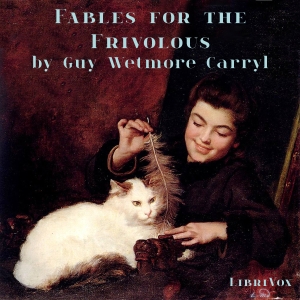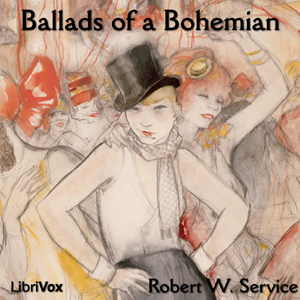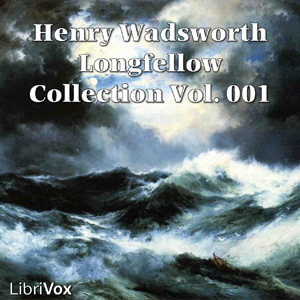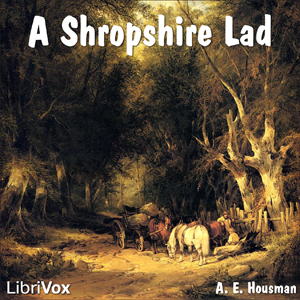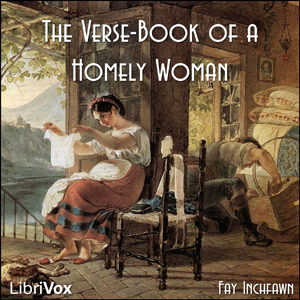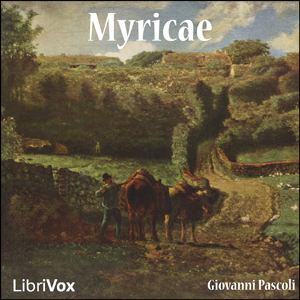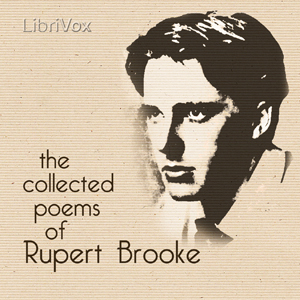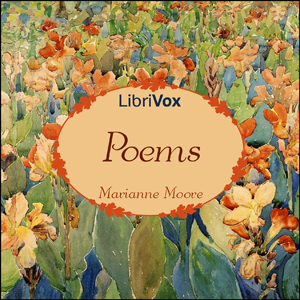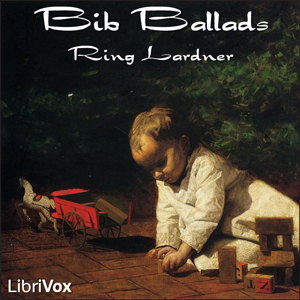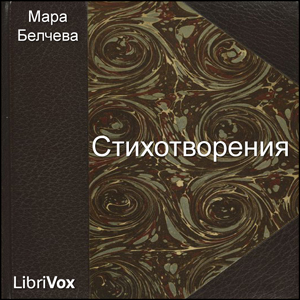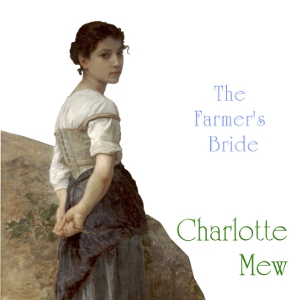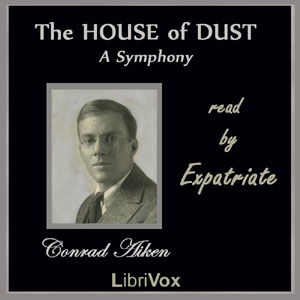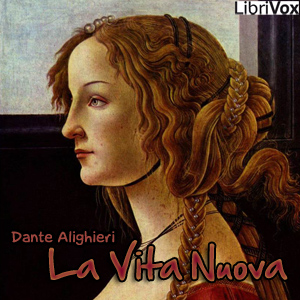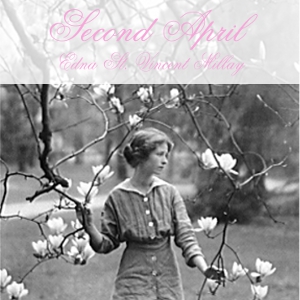One of the earliest works by the American parodist, Guy Wetmore Carryl, these fables are adapted from Jean de La Fontaine’s original writings. The fables are written in verse, and are light-hearted re-tellings of fables from two centuries before, each ending with a moral and a pun. Among the more celebrated of the fables are The Persevering Tortoise and the Pretentious Hare, The Arrogant Frog and the Superior Bull, and The Sycophantic Fox and the Gullible Raven. (Summary written by Chriss)
20 episodes
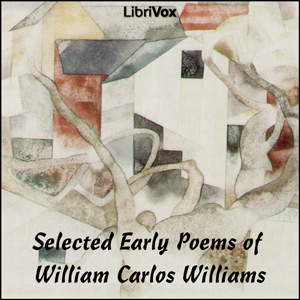
Williams was born in Rutherford, New Jersey, a community near the city of Paterson. His father was an English immigrant, and his mother was born in Puerto Rico. He attended public school in Rutherford until 1897, then was sent to study at Château de Lancy near Geneva, Switzerland, the Lycée Condorcet in Paris, France, for two years and Horace Mann School in New York City. Then, in 1902, he entered the University of Pennsylvania Medical School. During his time at Penn, Williams befriended Ezra Pound, Hilda Doolittle (best known as H.D.) and the painter Charles Demuth. These friendships supported his growing passion for poetry. He received his M.D. in 1906 and spent the next four years in internships in New York City and in travel and postgraduate studies abroad (e.g., at the University of Leipzig where he studied pediatrics). He returned to Rutherford in 1910 and began his medical practice, which lasted until 1951. Ironically, most of his patients knew little if anything of his writings; instead they viewed him as a doctor who helped deliver over 2,000 of their children into the world. (From Wikipedia)
42 episodes
Ballads of a Bohemian is a collection of poems tied together by the narration of the "author" Stephen Poore. The poems speak of bohemian life in Paris before the war, his experiences during World War I and its aftermath. (Summary by Kristin Hughes)
20 episodes
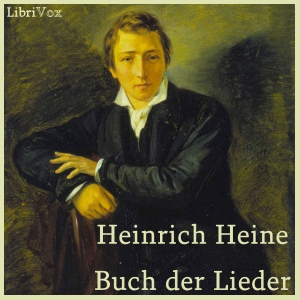
Nicht ohne Befangenheit übergebe ich der Lesewelt den erneueten Abdruck dieses Buches. Es hat mir die größte Überwindung gekostet, ich habe fast ein ganzes Jahr gezaudert, ehe ich mich zur flüchtigen Durchsicht desselben entschließen konnte. Bei seinem Anblick erwachte in mir all jenes Unbehagen, das mir einst vor zehn Jahren, bei der ersten Publikation, die Seele beklemmte. Verstehen wird diese Empfindung nur der Dichter oder Dichterling, der seine ersten Gedichte gedruckt sah. Erste Gedichte! Sie müssen auf nachlässigen, verblichenen Blättern geschrieben sein, dazwischen, hie und da, müssen welke Blumen liegen, oder eine blonde Locke, oder ein verfärbtes Stückchen Band, und an mancher Stelle muß noch die Spur einer Träne sichtbar sein... Erste Gedichte aber, die gedruckt sind, grell schwarz gedruckt auf entsetzlich glattem Papier, diese haben ihren süßesten, jungfräulichsten Reiz verloren und erregen bei dem Verfasser einen schauerlichen Mißmut. (Heinrich Heine im Vorwort zur zweiten Auflage)
15 episodes
A collection to celebrate Henry Wadsworth Longfellow's 200th birthday, on 27th February, 2007.
22 episodes
A collection of 23 poems by Edna St. Vincent Millay.
23 episodes
A Shropshire Lad is a cycle of sixty-three poems by the English poet Alfred Edward Housman. A Shropshire Lad was first published in 1896 at Housman's own expense after several publishers had turned it down. At first the book sold slowly, but during the Second Boer War, Housman's nostalgic depiction of rural life and young men's early deaths struck a chord with English readers and the book became a bestseller. Later, World War I further increased its popularity.(Summary from Wikipedia)
2 episodes
A collection of poems by Edna St. Vincent Millay.
49 episodes
The Passionate Pilgrim was published by William Jaggard, later the publisher of Shakespeare's First Folio. The first edition survives only in a single fragmentary copy; its date cannot be fixed with certainty since its title page is missing, though many scholars judge it likely to be from 1599, the year the second edition appeared with the attribution to Shakespeare.This version of The Passionate Pilgrim, contains 15 romantic sonnets and short poems. The works contained, while disputed as to authorship, are in this writer's most humble opinion among the best of the age. (Summary by Caliban and Wikipedia)
15 episodes
The time came when there was a birthday. Every day was no excitement and a birthday was added, it was added on Monday, this made the memory clear, this which was a speech showed the chair in the middle where there was copper.A kind of green a game in green and nothing flat nothing quite flat and more round, nothing a particular color strangely, nothing breaking the losing of no little piece.The teasing is tender and trying and thoughtful.Extracts from Tender Buttons.
3 episodes
Published by the Religious Tract Society in London, The Verse-Book of a Homely Woman is a collection of domestic, spiritual, and fanciful poems from the point of view of a woman, a housewife, and a Christian. The natural, supernatural, and solidly mundane are mixed together as well as separated into two parts: Indoors and Outdoors. Summary by Clarica.
45 episodes
Myricae, è la raccolta di poesie più amata dal Pascoli. [...] Nel 1903, la raccolta definitiva comprendeva 156 liriche del poeta. I componimenti in esso raccolti sono dedicati al ciclo delle stagioni, al lavoro dei campi e alla vita contadina. Il titolo indica la modestia e la semplicità della poetica. Le myricae, le umili tamerici, diventano un simbolo delle tematiche del Pascoli ed evocano riflessioni profonde. La descrizione realistica cela un significato più ampio così che, dal mondo contadino si arriva poi ad un significato universale. La rappresentazione della vita nei campi e della condizione contadina è solo all'apparenza il messaggio che il poeta vuole trasmettere con le sue opere. [...] Il significato delle Myricae, va quindi oltre l'apparenza. (Summary from Wikipedia)
31 episodes
Rupert Chawner Brooke was an English poet known for his idealistic War Sonnets written during the First World War (especially The Soldier), as well as for his poetry written outside of war, especially The Old Vicarage, Grantchester and The Great Lover. He was also known for his boyish good looks, which prompted the Irish poet William Butler Yeats to describe him as "the handsomest young man in England". (Summary from Wikipedia)
94 episodes
In 1921, American poet H.D. collected and published a selection of previously published poems by Marianne Moore. Although this angered Moore, as it was entirely unauthorized, she later accepted the edition as well made and used it as the basis for her own 1924 publication of Observations. Moore's unique poetry matches the experimentation underway during the American Modernist movement. Much of it incorporates seemingly out-of-place quotations into complex free verse that often uses Nature as a subject matter.
Today, despite the self-motivated alteration of her poetry in later life, done much to the dismay of her devotees, scholars consider Moore a significant American poet worthy of intense study in an a unalterable place in the canon.
(Summary by Oscar Goff)
24 episodes
The Forest is a short collection of Ben Jonson's poetry. This collection of fifteen poems first appeared in the 1616 first folio of his collected works. (Summary by Sheldon Greaves)
1 episodes
Ring Lardner is a typical parent when his first child is born, full of wonder and the rest of the usual emotions as he watches his little son grow. He wrote a series of 29 short poems on various facets of parenthood. (Summary by Jack Thro)
30 episodes
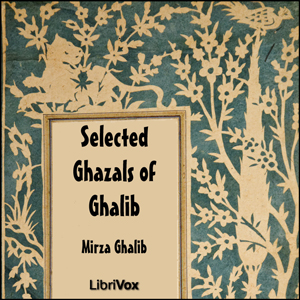
Mirza Ghalib, full name Mirza Asadullah Khan Beig, pen name ‘Ghalib’ (1797-1869) was a famous Urdu- and Persian-language poet of India. He is best known for his lyrical and spiritual ghazals. Ghazal is a form of poetry in couplets. In a ghazal, each couplet is self-contained and generally unconnected with the next.Ghalib was born in Agra, in northern India, and was raised by his uncle. Ghalib had no formal education, but was tutored in Persian by Muhammad Mu'azzam, a noted scholar of the time. He was married in 1810 to Umrao Begum, the niece of Nawab Ahmad Baksh Khan who was the ruler of Ferozepur and Loharu at that time. Ghalib was introduced to the elite circle of intellectuals and artists that surrounded the Indian royal family in Delhi because of his father in law. In 1821 he compiled his first collection of Urdu verse. Deewan e Ghalib, Nuskha e Hamida was Published in 1828. soon after the publication of his Urdu poetry collection Ghalib switched to writing entirely in Persian, also known as Farsi. In 1826, on the death of Ghalib's uncle, the British government began providing Ghalib and his family with a small pension for the military services of his uncle. Despite this income, Ghalib remained nearly destitute for most of his life.Ghalib was also a poetry teacher of the King, Bahadur Sha Zafar, who himself was a very nice poet.Ghalib led a miserable life for he started taking wine at a very young age when he was just a boy whereas his financial condition was not good, and moreover he had no children of his own. All of his children died during infancy. He then adopted his nephew called ‘Arif’ who also died at the age of 16. He collapsed emotionally because of the death of his adopted son. (Summary by Ahkam)
This recording was made from a printed copy of Deewan e Ghalib, Nuskha e Hamida published in 1828.
35 episodes
Четири кратки творби от поетесата Мара Белчева (8 септември 1868, Севлиево – 16 март 1937, София), посветени на човешката близост и доверие. Изповедното начало, характерно за ранните стихове на поетесата, по-късно се свързва с размисъл върху вечните човешки въпроси. Поетесата изповядва християнските добродетели и се уповава на тях, мисълта за Бога става една от доминантите в творбите ѝ. Висока нравственост, спокойно мечтателно-носталгично любовно чувство, дирене на хармония в съществуването определят облика на творчеството ѝ. (Summary by Euthymius, based on the Wikipedia article on the poetess.)
4 episodes

La Divina Comedia (también conocida como La Comedia) es un poema teológico escrito por Dante Alighieri. Se desconoce la fecha exacta en que fue escrito aunque las opiniones más reconocidas aseguran que el Infierno pudo ser compuesto entre 1304 y 1307–1308, el Purgatorio de 1307–1308 a 1313–1314 y por último, el Paraíso de 1313–1314 a 1321 (fecha esta última, de la muerte de Dante). La primera parte narra el descenso del autor al Infierno, acompañado por el poeta latino Virgilio, autor de la Eneida, a quien Dante admiraba. Acompañado por su maestro y guía, describe los nueve círculos en los que son sometidos a castigo los condenados, según la gravedad de los pecados cometidos en vida. Dante encuentra en el Infierno a muchos personajes antiguos, pero también de su época, y cada uno de ellos narra su historia brevemente a cambio de que Dante prometa mantener vivo su recuerdo en el mundo; cada castigo se ajusta a la naturaleza de su falta y se repite eternamente. Es particularmente recordada la historia de Paolo y Francesca, amantes adúlteros que se conocieron al leer en el libro de Lanzarote los amores de la reina Ginebra y este caballero, que fue motivo de inspiración y homenaje por poetas románticos y contemporáneos, así como la historia del conde Ugolino da Pisa, el último viaje de Ulises, el tránsito por el bosque de los suicidas, la travesía del desierto donde llueve el fuego y la llanura de hielo de los traidores, estos últimos, considerados los peores pecadores entre todos. (Resúmen de Arturo)
34 episodes
A collection of love poems. (Summary by Joy Chan)
85 episodes
Luís Vaz de Camões é frequentemente considerado como o maior poeta de língua portuguesa e dos maiores da Humanidade. O seu gênio é comparável ao de Virgílio, Dante, Cervantes ou Shakespeare. A obra lírica de Camões foi publicada como "Rimas", não havendo acordo entre os diferentes editores quanto ao número de sonetos escritos pelo poeta e quanto à autoria de algumas das peças líricas. Alguns dos seus sonetos, como o conhecido "Amor é fogo que arde sem se ver", pela ousada utilização dos paradoxos, prenunciam o Barroco. Nesta coleção, apresentamos uma recolha de Sonetos de Camões de tema filosófico. (Sumário adaptado da Wikipedia por Leni)
31 episodes
The Farmer's Bride is a collection of 28 poems by British modernist writer Charlotte Mew. The original edition was published in 1916; this edition, published in 1921, contains 11 more poems. Mew's poetry is varied in style and content, but manifests a concern with gender issues throughout. Mew's life was marked by loneliness and depression, and she eventually committed suicide. Her work earned her the admiration of her peers, including Virginia Woolf, who characterized her as "very good and quite unlike anyone else." (Summary by Elizabeth Klett)
2 episodes
A collection of Tennyson's poetry : 1 The Brook - 00:16 2 Song from "Maud" - 1:20 3 A Farewell - 2:34 4 Song from “Maud” - 3:26 5 Break, Break, Break - 4:53 6 From “Locksley Hall”- 5:43 7 Song from “Maud” - 6:43 8 Song from “The Princess” - 7:43 9 Lillian - 8:37 10 Ring out, Wild Bells - 9:52 11 From “The Princess” - 11:27 12 Song From “The Princess” - 12:43 13 From “Enoch Arden” - 13:58 14 From “Enoch Arden” - 15:36 15 The Charge of the Light Brigade- 16:56 16 From “The May Queen” - 18:51 17 Song from “The Princess” - 19:36 18 From “Harold” - 20:14 19 From “The Revenge” - 21:28 (From Sam Stinsson)
1 episodes
John Keats is perhaps the most talented poet of the English Romantic Period. Although his life was cut short by disease at the age of 25, he produced some of the most famous poems in world literature. Less erudite and philosophical than Shelley and not so technically versatile as Byron, he displayed a sure poetic instinct and an amazing ability to appeal powerfully to the senses and to the emotions by the brilliance of his diction. Thus his poetry is noted more for exquisite feeling than for thought, but in his particular sphere he was unmatched. His influence upon later poets has been immense. (Introduction by Leonard Wilson)
32 episodes

John Donne was an English Jacobean preacher, sometime lawyer, later in life a Member of Parliament and Royal Chaplain. Marrying for love against the wishes of his influential father-in-law; Donne's career was cast into shadow: forcing him to support his wife, Anne, as best he might under a specter of unforgiving penury. Despite such hardships - perhaps because of them - Donne's writings demonstrate a mastery of poetry layered with metaphysical meaning and mystery: which continues to delight and challenge modern-day readers. Donne's "divine poems" - the focus of this collection - present profound theological insights using absorbing allegories and beautiful imagery. At the end of Donne's life - as his health deteriorated under illnesses of increasing severity - his poetry served him as: distraction, consolation, and even "public confession". With them, Donne cheerfully but soberly faces the limits of his own mortality: and contemplates the mysteries that lie beyond the grave. (Introduction by Godsend)
5 episodes

Il Canzoniere di Francesco Petrarca è stata una grande "rivoluzione" nella letteratura europea in volgare: è il primo caso di canzoniere stricto sensu, cioè una raccolta organica di liriche "costruita" dall'autore in una prospettiva di unitarietà.
E in effetti Petrarca, nonostante la intitolasse Rerum vulgarium fragmenta ("Frammenti di cose volgari"; il titolo "Canzoniere" verrà attribuito solo nel XVI sec.), ha scrupolosamente curato per tutta la vita la realizzazione di quest'opera, selezionando, limando, cambiando la disposizione dei componimenti, di cui persino il numero (366) ha un valore strutturale: i giorni dell'anno più un proemio, o dell'anno bisestile in cui era morta la donna amata (1348).
Naturalmente, fiumi di inchiostro sono stati versati per analizzare quest'opera la cui influenza sulla letteratura europea è stata così "fenomenale" da meritare un termine ad hoc: "Petrarchismo".
Ci basti dire qui che il Canzoniere, cantando - col linguaggio più melodico di tutta la lirica italiana - l'amore per un'unica donna, esprime magnificamente il sentimento del tempo. (Sergio Baldelli)
183 episodes
The Ballad of the White Horse is a poem by G K Chesterton about the idealized exploits of the Saxon King Alfred the Great, published in 1911. Written in ballad form, the work is usually considered an epic poem. The poem narrates how Alfred was able to defeat the invading Danes at the Battle of Ethandun under the auspices of God working through the agency of the Virgin Mary. In addition to being a narration of Alfred's militaristic and political accomplishments, it is also considered a Catholic allegory. Chesterton incorporates a significant amount of philosophy into the basic structure of the story. (Introduction by Wikipedia)
9 episodes
Japan
An old courtyard Hidden awayIn the afternoon.Grey walks,Mossy stones,Copper carp swimming lazily,And beyond,A faint toneless hissing echo of rain That tears at my heart.
John Gould Fletcher offers a brief history of Japanese poetry, as well as a short, yet vivid, compilation of his own Japanese-inspired poems. (summary by John N. Daily)
5 episodes
For this collection, LibriVox volunteers made their own selections from Robert Browning's poetry and prose to celebrate the 200th anniversary of his birth on 7th May 1812.
30 episodes
Early poems written by Walter de la Mare. de la Mare is best remembered for his works for children. This collection includes:
Poems: 1906The Listeners: 1914Motley: 1918Songs of Childhood: 1901
(Summary by MaryAnn)
49 episodes
A collection of poetry by Thomas Hardy, some of which were previously published or adapted into his prose works. - Summary by Libby Gohn
49 episodes
The House of Dust is a poem written in the four-movement format of a classical symphony. Hauntingly beautiful despite its bleak post-World War I depictions of human mortality and loss, the poem develops its movements around central images such as Japanese ukiyo-e ("floating world") woodblock prints, touching the reader's senses with endlessly evocative allusions to wind, sea, and weather. In this underlying Japanese sensibility and dependence on central perceptual images, Aiken's poem is similar to poetry of Imagists of the time such as Amy Lowell. Also deeply influenced by the concepts of modern psychology, Aiken delved deeply into individual human identity and emotion. - Summary by Expatriate
4 episodes
"Better translate--"A Roman murder-case:
"Position of the entire criminal cause
"Of Guido Franceschini, nobleman,
"With certain Four the cutthroats in his pay,
"Tried, all five, and found guilty and put to death
"By heading or hanging as befitted ranks,
"At Rome on February Twenty-Two,
"Since our salvation Sixteen Ninety Eight:
"Wherein it is disputed if, and when,
"Husbands may kill adulterous wives, yet 'scape
'The customary forfeit.'"
(Excerpt from first chapter of The Ring and the Book.)
Note from reader: The main text I have read from follows the first edition; but there are some words or lines that do not make sense, either through copying mistakes or because they are difficult if not impossible to make sense of in the first edition. In such cases, I have relied upon an alternate text, found at archive.org and also in the public domain, that contains the wording of the later editions. --Tony Oliva
166 episodes
In the prefatory advertisement to the First Edition of the Prelude, 1850, it is stated that that poem was designed to be introductory to the Recluse, and that the Recluse, if completed, would have consisted of three parts. The second part is the Excursion. The third part was only planned. The first book of the first part was left in manuscript by Wordsworth. It is now (1888) published for the first time in extenso. (Summary from the Preface)
3 episodes
Historical information relating the nature, extent, and consequences of The Great Chicago Fire of 1871, the insurance losses, and the relief costs. A brief interlude of comic relief is inserted midway in the form of a poem regarding the event.. - Summary by lubee930
17 episodes

One of Dante's earliest works, La vita nuova or La vita nova (The New Life) is in a prosimetrum style, a combination of prose and verse, and tells the story of his youthful love for Beatrice. The prose creates the illusion of narrative continuity between the poems; it is Dante's way of reconstructing himself and his art in terms of his evolving sense of the limitations of courtly love (the system of ritualized love and art that Dante and his poet-friends inherited from the Provençal poets, the Sicilian poets of the court of Frederick II, and the Tuscan poets before them). Sometime in his twenties, Dante decided to try to write love poetry that was less centered on the self and more aimed at love as such: he intended to elevate courtly love poetry, many of its tropes and its language, into sacred love poetry. Beatrice for Dante was the embodiment of this kind of love—transparent to the Absolute, inspiring the integration of desire aroused by beauty with the longing of the soul for divine splendor. - Summary by adapted from Wikipedia by Mary J
12 episodes
Although best known for the creation of the detective Sherlock Holmes, Arthur Conan Doyle did not only write works of mystery and of advenure - he was also a rather successful poet. This is a collection of poems written by the famous author. - Summary by Carolin
32 episodes
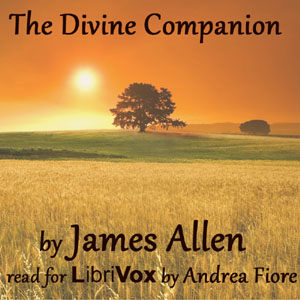
It cannot be said of this book that James Allen wrote it at any particular time or in any one year, for he was engaged in it over many years and those who have eyes to see and hearts to understand will find in its pages the spiritual history of his life. It was his own wish that The Divine Companion should be the last MS of his to be published. " It is the story of my soul," he said, " and should be read last of all my books, so that the student may understand and find my message in its pages. Therefore hold it back until you have published everything else." There remain now only his dramatic works and a few poems to be included in the next edition of Poems of Peace. That The Divine Companion will prove a companion indeed to thousands who have read his books in the past, I have no doubt. To read it is to hear again the voice of the writer, and to study its message is to once again sit at his feet. He trod the Way himself - every bit of it, and he therefore speaks as one having authority. Lovers of James Allen’s works will indeed be filled with joy to know that there is yet another book from his inspired pen, and will eagerly welcome The Divine Companion. - Summary by Lily L. Allen
7 episodes
Written by poet Irving Sydney Dix in 1913 for "evidence of my love for and interest in the greatest of all the arts," this little collection of poems includes "The Calendar," "Fairies of the Frost," and "The Sinking of the Titanic." (Summary by Woolly Bee)
15 episodes
In quella parte del libro della mia memoria dinanzi alla quale poco si potrebbe leggere, si trova una rubrica la quale dice Incipit Vita Nova. Sotto la quale rubrica io trovo scritte le parole le quali è mio intendimento d'asemplare in questo libello, e se non tutte, almeno la loro sentenzia. - Summary by Dante Alighieri, Vita Nuova
9 episodes
A collection of poems by Alfred, Lord Tennyson, his first book of poetry after having become poet laureate in 1850. Among the "other poems" is The Charge of the Light Brigade, the most well-known poem in this collection. However, the bulk of the text is the poem Maud, which explores love, courtship, loss, grief, and purpose through the eyes of the emotionally unstable poet narrator. (Summary by TriciaG)
13 episodes
This little gem of a book contains twelve poems about World War I. There is more to it than its intrinsic value as verse. Edward Elgar (1857-1934) set three of the poems (The Fourth Of August, To Women, For The Fallen) in his cantata The Spirit of England (1915-1917). Since its composing and musical setting, For The Fallen has held an honored place in every November 11th Remembrance Day for Britain and the Commonwealth (Memorial Day for Americans). Moved by the opening of the Great War and the already high number of casualties of the British Expeditionary Force, in 1914 Laurence Binyon wrote his For the Fallen, with its Ode of Remembrance, as he was visiting the cliffs on the north Cornwall coast,… The third and fourth verses of the poem (although often just the fourth) have so been claimed as a tribute to all casualties of war, regardless of nation.
- Summary by Wikipedia and david wales
12 episodes
Clark Ashton Smith, referred to as one of the big three of Weird Tales, was a romantic-style poet, a Lovecraftian-style writer and a literary friend of H.P Lovecraft. As a poet, he was considered one of the last great West Coast Romantics. The Star-Treader and Other Poems, published at the age of 19, was his first volume of poetry and his breakout hit. Summary by Mary Kay.
Cast List for The Masque of the Forsaken Gods:
Narrator and Aphrodite: Mary KayThe Poet: Lucretia B.The Philosopher, Apollo and Another Nymph: Rosslyn CarlyleJove and Pan: JamieArtemis: Jennifer DallmanA Nymph: Greg GiordanoAte and The Gods Together: Shakira SearleEdited by: Mary Kay
46 episodes
Las Fábulas literarias es la obra más conocida del fabulista Tomás de Iriarte. Consiste en una colección de poemas satíricas y morales escritas con una estética definitivamente neoclásica. Según la Advertencia del editor (en la edición de 1782): “esta es la primera coleccion de fábulas enteramente originales que se ha publicado en castellano [y] la doctrina que sobre uno y otro punto encierran estos apólogos, va amenizada con la variedad de versificacion”. - Summary by Catherine Grissom
75 episodes
A dark and moody collection of poems, influenced by the author's experience of nature, rather than an idealized notion of it. "The uncrowned King of Bohemia," as his friends called him, published this work against much public criticism. Summary by Assaf Koss.Cast List for The Triumph of BohemiaNarrator: MaryAnnSpirit of Bohemia: Kristin GjerløwMammon: David LawrenceSpirit of Time: Ian KingSpirit of the North-Wind: Larry WilsonSpirit of the East-Wind, Second Tree Spirit: April WaltersSpirit of the West-Wind: Mary KaySpirit of Fire: Shakira SearleFirst Woodman: Beth ThomasSecond Woodman, Spirit of the South-Wind: James KossFirst Tree Spirit: ToddHWThird Tree Spirit: Lydia
36 episodes
Книга стихов "Камень" (1916). Некоторые из стихотворений этого раннего собрания отличаются от знакомых слушателю более поздних редакций.
Poetry collection "The Stone" (1916). Some poems in this early volume vary from the later versions loved by many readers. (M. Chulsky)
5 episodes
Le Rime sono una raccolta messa insieme e ordinata da moderni editori, che riunisce il complesso della produzione lirica dantesca dalle prove giovanili a quelle dell'età matura. Le rime giovanili comprendono componimenti che riflettono le varie tendenze della lirica cortese del tempo, quella guittoniana, quella guinizzelliana e quella cavalcantiana. Tra questo gruppo di testi Dante aveva scelto quelli che dovevano entrare a far parte della Vita Nova. (Summary by Wikipedia)
N.B. Questa edizione (dell'Ottocento) contiene alcune poesie che gli studiosi non attribuiscono più a Dante, come per esempio la ballata "Fresca rosa novella" di Calvalcanti. Le includiamo comunque per mantenere l'integrità del volume.
109 episodes
Patrick Brontë (father of the famous Brontë sisters, Charlotte, Emily and Anna) is mainly remembered as a father, reverend and teacher, but he also was a poet and a novelist. Cottage Poems, his first published work, he gives gentle spiritual advice and guidance to the community, colleagues and members of his congregation in the form of lyrical letters.Even if one is simply interested in his daughters' works, it is still interesting to see where the sisters' inspiration to write may have come from. (Summary by Mary Kay)
12 episodes

As stated in L'Alouette: A Magazine of Verse, "Ebony and Crystal is an artist's intrepid repudiation of the world of trolleys and cash-registers, Freudian complexes and Binet-Simon tests, for realms of exalted and iridescent strangeness beyond space and time yet real as any reality because dreams have made them so. Mr. Smith has escaped the fetish of life and the world, and glimpsed the perverse, titanic beauty of death and the universe; taking infinity as his canvas and recording in awe the vagaries of suns and planets, gods, and daemons, and blind amorphous horrors that haunt gardens of polychrome fungi more remote than Algol and Achernar. It is a cosmos of vivid flame and glacial abysses that he celebrates, and the colorful luxuriance with which he peoples it could be born from nothing less than sheer genius.
The summation of Mr. Smith's exotic vision is perhaps attained in the long phantasmal procession of blank verse pentameters entitled, "The Hashish-Eater; or, the Apocalypse of Evil." In this frenzied plunge through nameless gulfs of interstellar terror the Californian presents a narcotic pageant of poisonous vermilious and paralysing shadows whose content is equalled only by its verbal medium; a medium involving one of the most opulent and fastidiously choice vocabularies ever commanded by a writer of English."
Clark Ashton Smith, referred to as one of the big three of Weird Tales, was a romantic-style poet, a Lovecraftian-style writer and a literary friend of H.P Lovecraft. As a poet, he was considered one of the last great West Coast Romantics. Ebony and Crystal, published in 1922, was Smith's last collection of pure poetry.
- Summary by Mary Kay and L'Alouette: A Magazine of Verse
116 episodes

Sit back and listen to these light-hearted witty rhymes and see the world Jonathan Swift saw -- and maybe recognize your own. Think there is such a thing as corrupt rich guys who pretend they're God's gift to the world? So did Swift. Think some of these types strut around as if calls of nature don't apply to them? So did Swift. In one hilarious poem, he even describes gold diggers fighting over the loaded gentleman's gaseous offerings! His poem On Poetry, A Rhapsody, censored for treasonous mocking of the royal family, is in its rare uncensored form here. As free as he himself is with his sharp tongue against the blackened rich and corrupt , he knows others might have to kiss up to eat. So he includes many verses of advice on how to go about lying for a living, for example, "Your interest lies to learn the knack Of whitening what before was black." Despite the decay and hypocrisy he sees all around him he stays upbeat throughout -- even making fun out of his own tragic onset of deafness. You already know this giant of English literature for the great feast of prose he left us. Think of these delicious poems here as your sinful dessert. - Summary by Arthur Krolman
121 episodes
